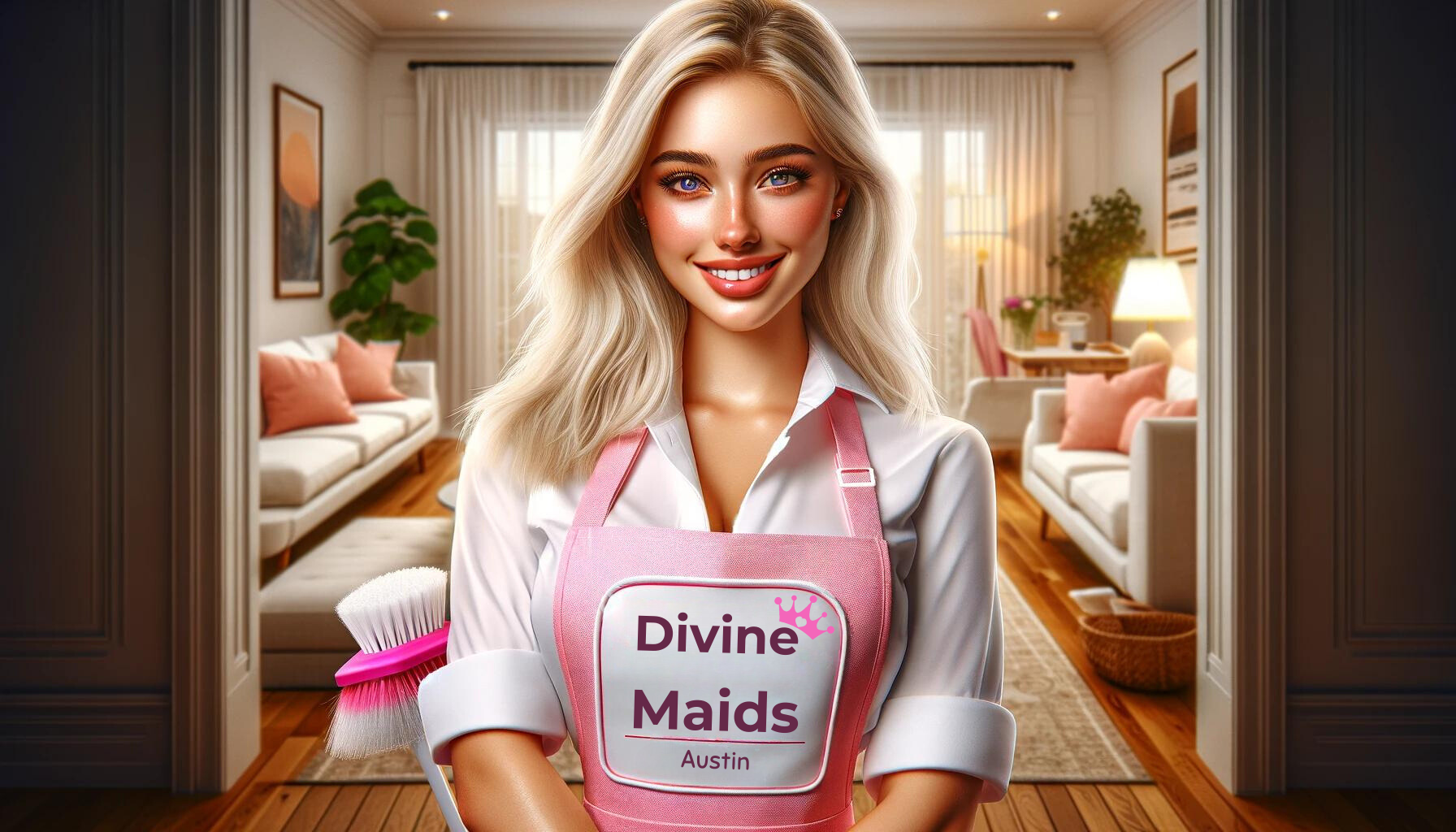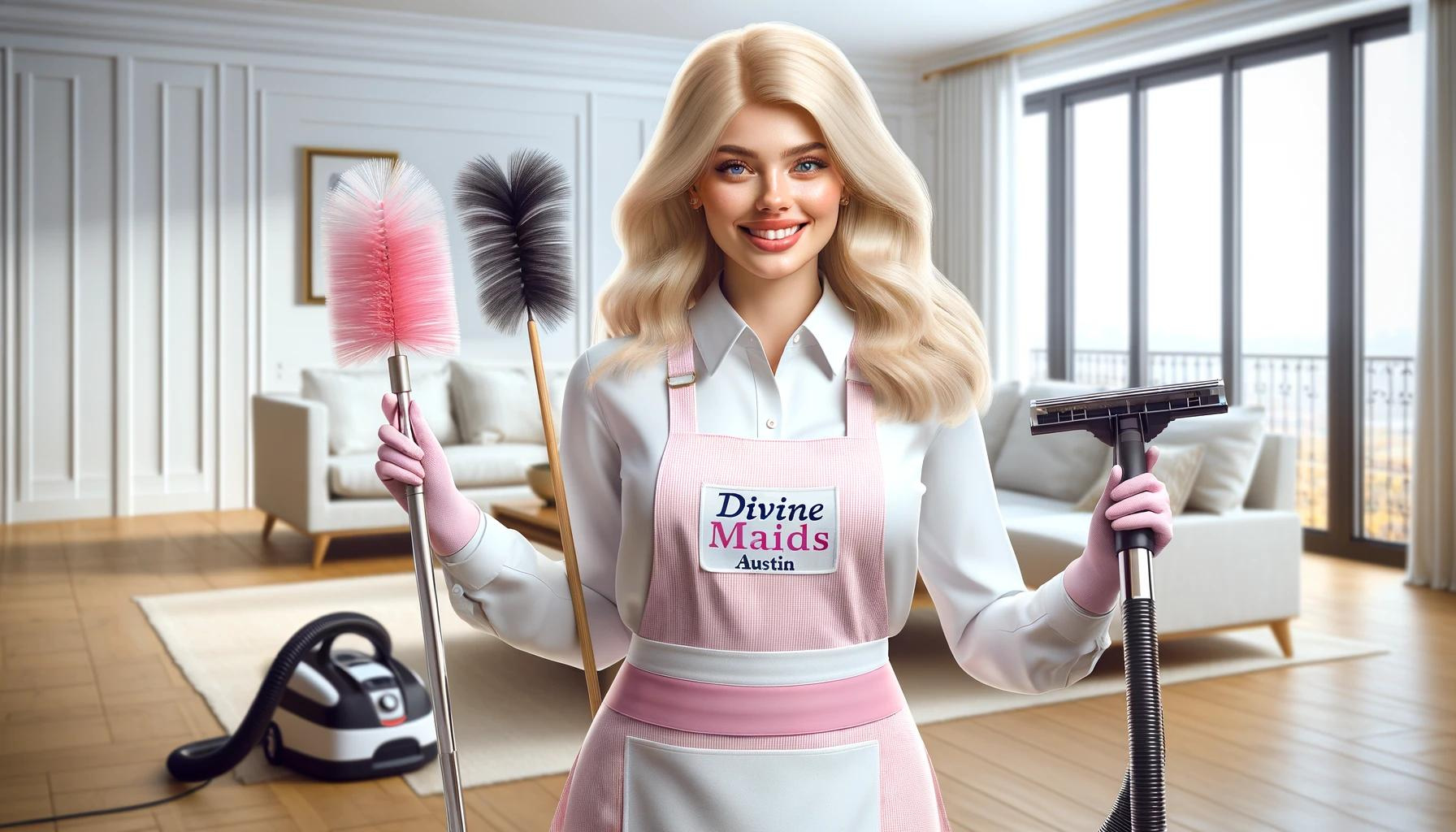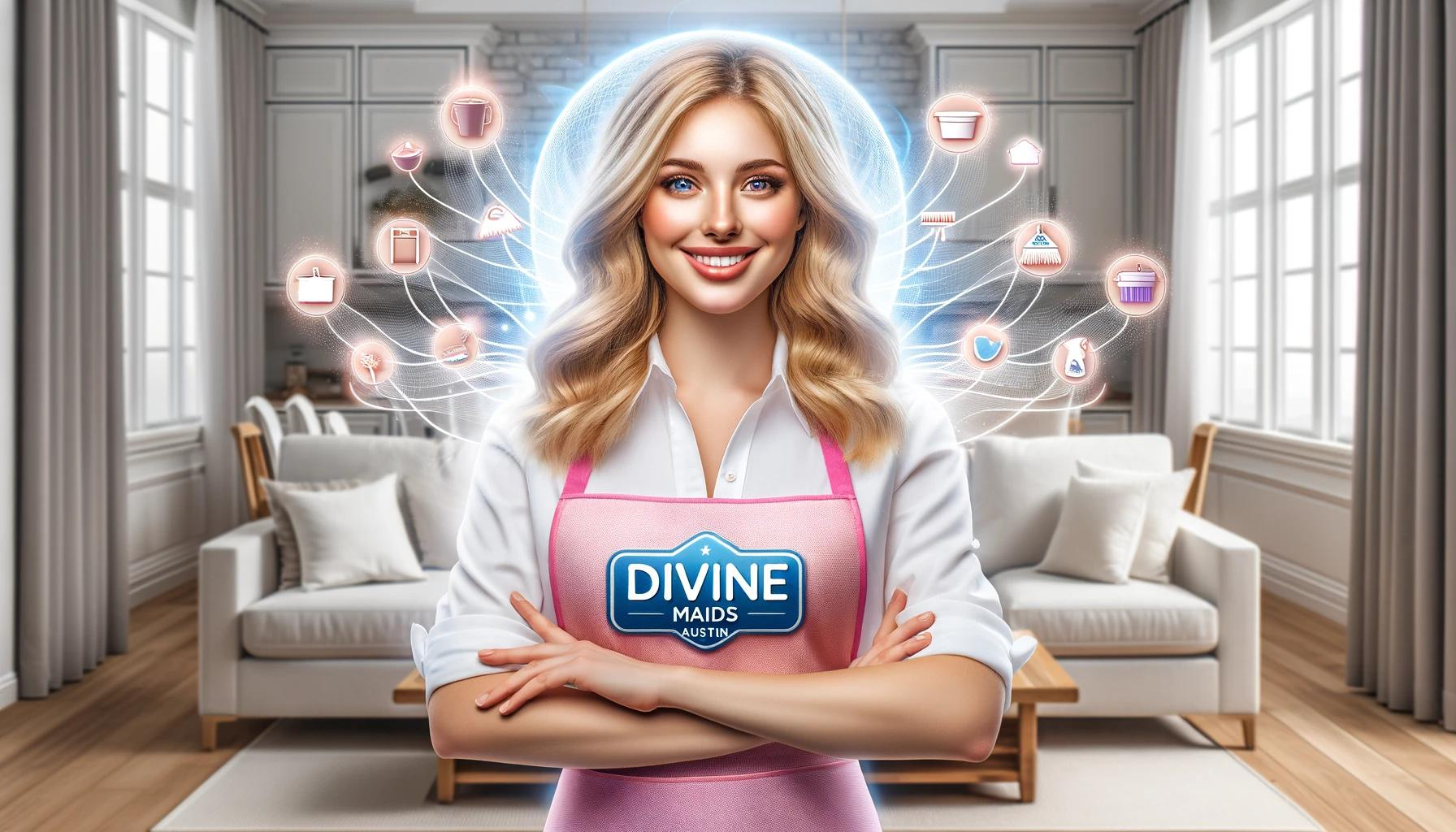Busting Cleaning Myths: What Works And What's Just A Waste Of Time
Busting Cleaning Myths: What Works And What's Just A Waste Of Time
We're Calling Out The Cleaning 'HACKS' That Don't Actually Help
In the endless quest for a clean and inviting home, we often find ourselves sifting through an overwhelming array of cleaning advice, much of it promising miraculous results with minimal effort. However, the reality is that not all cleaning advice is created equal, and some widely touted hacks are more myth than magic, leading to wasted time and less-than-ideal outcomes. Divine Maids Austin takes a critical look at these myths, intending to illuminate the truth behind effective cleaning practices. By examining what works versus what amounts to little more than old wives' tales, we aim to provide you with reliable, evidence-based strategies that not only make your cleaning efforts more productive but also contribute to a healthier, more hygienic home environment. This introduction to debunking cleaning myths is not just about dispelling falsehoods; it's an informative guide designed to empower you with the knowledge and tools necessary for maintaining your space with efficiency and confidence.
Exposing Cleaning Myths: What Works
Dive into the truth as we tackle and debunk the most pervasive cleaning myths that might be complicating your routine. From understanding vinegar's true cleaning capabilities to uncovering the actual effectiveness of bleach and beyond, this guide is designed to help you navigate through common misconceptions. Learn the best practices for efficient and effective cleaning, ensuring your efforts lead to a genuinely spotless and welcoming home.
Myth 1: Using Vinegar As A Universal Cleaner
Vinegar, often celebrated for its cleaning capabilities, is a staple in many cleaning hacks due to its acidic properties. While it is effective in removing mineral deposits and surface grime, it's not suitable for all types of materials. Although vinegar can be quite effective on glass and stainless steel, it is not recommended for use on natural stone surfaces like granite or marble, as it can etch and dull the finish. Similarly, using vinegar on hardwood floors over time can lead to a loss of shine and durability, with the acid degrading the protective finish.
Moreover, the rubber seals in appliances like dishwashers and washing machines can become brittle and break down with regular vinegar use, leading to leaks and costly repairs. The key takeaway here is the importance of using the right cleaner for the right surface. Specialty cleaners, though seemingly more expensive, can extend the life of your surfaces and appliances, making them a wiser investment in the long run.
Myth 2: The More Detergent, The Cleaner The Clothes
This myth is widespread and enduring, yet the reality is that using an excessive amount of detergent can be counterproductive. Too much detergent fails to rinse out thoroughly, leaving a residue that not only traps dirt and bacteria but also makes clothes appear dingy and emits a musty odor. Moreover, this residue can build up in your washing machine, encouraging mold growth and leading to mechanical problems.
The correct amount of detergent depends on the size of the load, the concentration of the detergent, and the hardness of your water. Many modern detergents are highly concentrated, requiring far less than what one might assume. Following the manufacturer's guidelines for detergent use can save you money, protect your clothes, and extend the life of your washing machine.
Myth 3: Feather Dusters Are Great For Dusting
Feather dusters, while charming in their old-world appeal, are not the most effective tools for dust removal. They often scatter dust into the air rather than capturing it from surfaces, rendering cleaning efforts less effective and potentially worsening indoor air quality. Instead, microfiber cloths are recommended for dusting as they attract and hold dust particles with static electricity. These clothes can be washed and reused, offering an eco-friendly option. For hard-to-reach places, a vacuum with a HEPA filter is effective at removing dust without redistributing it throughout your home
Myth 4: Bleach Cleans Everything
While bleach is often touted as the ultimate cleaner and disinfectant, its reputation as a catch-all solution is somewhat misleading. While bleach is effective at killing germs, it does little to remove dirt and grime from surfaces. It's best used judiciously, primarily as a disinfectant after surfaces have been cleaned with soap and water. Additionally, it's important to never mix bleach with ammonia or vinegar, as this can produce toxic gases. For everyday cleaning, there are safer and more effective alternatives that can clean and disinfect without the harshness of bleach.
Myth 5: Newspapers For Streak-Free Windows
The practice of using newspapers to clean windows has long been ingrained in household cleaning lore, with the idea that the ink's texture helps to gently scrub away dirt and grime while leaving behind a sparkling finish. However, as printing technologies have evolved and newspapers now use different types of ink and paper, this age-old method may not deliver the desired results. It's more likely to leave streaks and ink residue on your windows, detracting from the overall cleanliness of your home's interior.
Instead of relying on newspapers, modern cleaning practices advocate for the use of alternative tools and solutions to achieve streak-free windows. One highly recommended approach is to use a squeegee in conjunction with a homemade solution of water and vinegar or a trusted commercial glass cleaner. This method not only ensures a streak-free shine but also minimizes the risk of creating a mess or causing damage to window sills and frames that can occur with newspaper ink.
Myth 6: Coca-Cola As A Toilet Cleaner
The notion that Coca-Cola, owing to its acidic properties, can double as a toilet cleaner is a testament to its perceived versatility, albeit not necessarily its effectiveness as a household cleaning agent. While it may provide some assistance in tackling rust and limescale build-up, it falls short in comparison to purpose-made toilet cleaners when it comes to thoroughly cleaning and sanitizing bathrooms.
It's crucial to recognize that specialized toilet cleaners are specifically formulated to not only remove surface stains but also effectively eliminate bacteria and viruses, thus ensuring a hygienic environment. Unlike Coca-Cola, these products are engineered with the precise chemical composition needed to address the unique challenges of toilet cleaning comprehensively.
Additionally, the reliance on Coca-Cola as a cleaning solution may not be the most cost-effective or environmentally friendly choice, especially when considering the array of dedicated cleaning products available on the market. Opting for these purpose-made cleaners not only ensures superior results but also minimizes unnecessary waste and environmental impact associated with using non-traditional cleaning agents.
Conclusion
The journey through these cleaning myths highlights the importance of using the right tools and techniques for the job. Divine Maids Austin reminds us that while shortcuts and hacks may seem appealing, they often don't deliver the promised results and can sometimes lead to more harm than good. By choosing the appropriate cleaning methods and products, we can ensure our homes are not just superficially clean but truly hygienic and well-maintained. Remember, effective cleaning is not about using the most aggressive solution but the most appropriate one.


